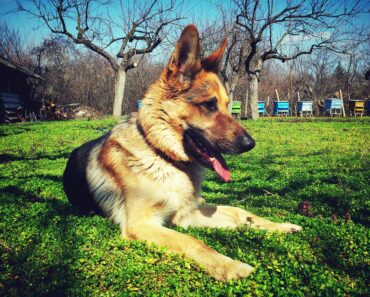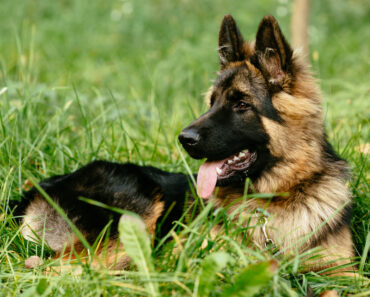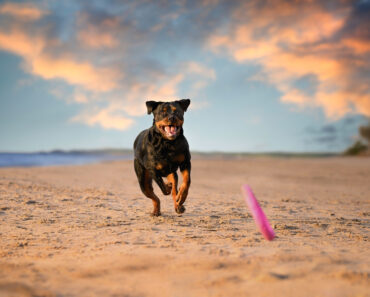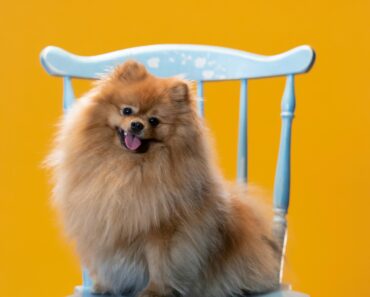The Rottweiler breed is set to grab the spotlight as the new year begins. This powerful dog is known for its loyalty and has a deep history. We’ll explore how their temperament and behavior might change in 2024. This article will cover the breed’s traits, what affects their behavior, and the latest trends.
Show a futuristic rottweiler with cybernetic enhancements exhibiting intelligence and adaptability in a bustling cityscape, while maintaining its innate loyalty to its human companion.
Key Takeaways
- Rottweiler temperament and behavior will continue to be a focus for owners and enthusiasts in 2024.
- Understanding the breed’s history and characteristics is crucial for managing their behavior effectively.
- Proper socialization and training techniques will be essential for Rottweiler owners in the coming year.
- Strategies for managing potential aggression and addressing common behavioral issues will be of paramount importance.
- Establishing a positive routine and maintaining consistency will be key to nurturing well-adjusted Rottweilers in 2024.
Introduction to Rottweiler Temperament
The Rottweiler has a long history and distinct traits that shape its temperament. Knowing where they come from and their breed traits is key to their behavior and happiness.
Breed History and Characteristics
Rottweilers come from the Roman mastiff-type dogs, used by the ancient Romans as working dogs. They helped with guarding, herding, and pulling carts as the Roman Empire grew. Over time, they changed, and the Rottweiler we know today came from Rottweil, Germany. There, they were used to drive cattle and guard.
Rottweilers are known for their strong build and broad head. They are 24 to 27 inches tall and can weigh up to 135 pounds. Their coat is short and straight, with a black and tan color. These traits make them strong and fit for many jobs.
Factors Influencing Rottweiler Behavior
- Genetics: Their temperament and behavior come from their genes, shaped by their past jobs.
- Socialization: Socializing Rottweilers early helps them get along with people and other animals, preventing aggression or fear.
- Training: Training them well, including obedience, helps use their strength and protective instincts for good. It makes them better behaved and more adaptable.
- Environment: Where they live, with other pets, kids, and the level of activity, affects their behavior and happiness.
Understanding the Rottweiler’s history, looks, and what affects their temperament helps owners and trainers. It prepares them for the needs of this strong and loyal breed.
Rottweiler Behavior 2024: Predictions and Trends
Experts say Rottweilers will change in behavior and temperament by 2024. These changes will come from new owners, better training, and how people see the breed.
A big trend will be more focus on rottweiler aggression management. As more first-time dog owners pick Rottweilers, it’s key to teach them well and socialize them early. Owners must tackle aggression with the right training and methods.
Technology will also change how we train Rottweilers. New tools and apps will help owners understand and change their dogs’ rottweiler behavior 2024. This will lead to Rottweilers that are better adjusted and easier to live with.
| Predicted Rottweiler Behavior Trends | Potential Drivers of Change |
|---|---|
| Increased focus on aggression management | Shifting owner demographics, need for responsible ownership |
| Advancements in training methods and technology | Emergence of innovative training tools and apps |
| Greater adaptability and sociability | Improved socialization techniques and owner education |
By tackling these trends early, Rottweiler owners and fans can help the breed keep up with changing needs. This ensures the breed thrives and fits well with its owners and itself.
“The key to success with Rottweilers in 2024 will be a focus on early socialization, positive reinforcement training, and a deep understanding of the breed’s unique temperament and characteristics.”
The Role of Proper Socialization
Rottweilers are known for their loyalty and protective nature. But, they need proper socialization to shape their behavior. Socialization means exposing Rottweiler puppies to different people and places. This helps them become confident and well-behaved friends.
Socialization Techniques for Rottweilers
Start rottweiler socialization early, between 3 and 12 weeks old. This is key for teaching them social skills and confidence. Here are some top rottweiler socialization techniques:
- Meet different people, like kids, seniors, and those with unique looks and behaviors.
- Take the puppy to various places, such as parks and pet stores, to get them used to new settings.
- Introduce them to other dogs and animals to learn how to play and be social.
- Give them treats and praise when they act calm and confident during social times.
- Slowly increase the time and variety of social experiences to help them grow confident and strong.
Using these rottweiler socialization techniques, owners can make their Rottweilers into friendly, well-adjusted pets. This reduces the chance of fear, aggression, or anxiety later on.
“Proper socialization is the foundation for a well-adjusted Rottweiler. It’s crucial to start early and expose your pup to a variety of positive experiences to help them become confident and well-behaved companions.”
Rottweiler Obedience Training Essentials
Rottweilers are smart and loyal dogs, but they need special training because of their size and strength. Learning the basics of training is key for a well-behaved rottweiler. This part covers the main things that help a rottweiler obey commands and behave well.
Command-Based Training
Training a rottweiler should focus on simple commands like sit, stay, come, and heel. It’s important to practice these commands often and use positive rewards. Be patient and consistent, as rottweilers can be a bit stubborn.
Socialization within Training
Socializing your rottweiler is just as important as teaching commands. Letting your puppy meet different people, places, and animals helps them feel confident and less likely to have behavior problems. Socializing should be done slowly, so your rottweiler gets used to new things.
Enrolling in Obedience Classes
You can train your rottweiler at home, but rottweiler obedience classes can be really helpful. Trainers with experience can give you advice and help with any problems you face. These classes also let your rottweiler meet other dogs and learn in a controlled setting.
Using consistent and positive rottweiler training tips is key to having a well-behaved rottweiler. By learning the basics of obedience, you can make sure your rottweiler is confident, listens well, and fits in with your family.https://www.youtube.com/embed/gLAVugPBIxo
“Successful rottweiler training requires patience, consistency, and a positive approach. With the right guidance, you can build a strong bond with your rottweiler and ensure they become a well-behaved companion.”
Managing Potential Rottweiler Aggression
Rottweilers are known for their loyalty and strength. They can be protective too. But, if not socialized and trained right, they might show aggression. It’s important to know how to handle rottweiler aggression management for their owners.
Recognizing Signs of Aggression
Spotting early signs of aggression in Rottweilers is key. Look out for these signs:
- Growling, snarling, or baring teeth
- Stiff body posture and intense staring
- Raised hackles (fur on the back standing up)
- Lunging or snapping without provocation
Effective Strategies for Aggression Management
Managing aggression in Rottweilers requires a mix of methods. Here are some strategies that work:
- Proper Socialization – Introduce Rottweilers to various people, animals, and places early on. This can prevent fear-based aggression.
- Positive Reinforcement Training – Reward them for being calm and obedient. This helps reduce aggression.
- Consistent Discipline – Set clear rules and consequences. This helps Rottweilers know what’s expected.
- Environmental Management – Control their environment to avoid triggers that might cause aggression.
By knowing the signs of aggression and using a good management plan, Rottweiler owners can help their dogs be well-behaved and social.
Rottweiler Behavior Modification Techniques
Many Rottweiler owners struggle with their dog’s bad behaviors. But, with the right methods, these issues can be fixed. In 2024, there will be many resources and strategies to help improve your Rottweiler’s behavior. This will make your relationship with your dog better.
Positive reinforcement is a great way to change your Rottweiler’s behavior. Give them treats, praise, or playtime when they do something good. This makes them want to do it again and builds a strong bond with you.
- Desensitization slowly introduces your Rottweiler to things that make them react badly, helping them get used to it.
- Counterconditioning changes how your dog feels about something, making them react positively instead of negatively.
Being consistent and patient is crucial when training your Rottweiler. Always reward the good behaviors and ignore the bad ones. With time and effort, your Rottweiler will learn to control their impulses and be a great companion.
“Positive reinforcement is the foundation of successful Rottweiler behavior modification. Rewarding good behavior encourages the dog to repeat those actions, leading to long-term improvements.”
Using these methods, Rottweiler owners can expect their dogs to behave better in the future. This will make your relationship with your dog much better.
A Rottweiler standing still while a trainer holds a clicker and treats in hand, surrounded by various objects such as toys, bones, and food bowls. The trainer is pointing towards the correct object while the dog is looking directly at it, indicating successful behavior modification training.
The Importance of Routine and Consistency
For rottweilers, having a daily routine is key to their happiness and behavior in 2024. They love knowing what to expect, which makes them feel safe. It also helps with their training and getting along with others.
Establishing a Positive Routine
Rottweiler owners should make a daily plan that includes exercise, brain games, and quality time with their dogs. This could be:
- Regular walks, playtime, or training sessions
- Set times for meals and feeding
- Time for interactive games, puzzle toys, or training
- Consistent sleep and wake times
This positive routine makes rottweilers feel safe and confident. It helps them behave well in 2024 and the future.
| Rottweiler Behavior Factors | Impact of Consistent Routine |
|---|---|
| Obedience and Training | A consistent routine helps make training easier and strengthens the bond with the owner. |
| Socialization | Knowing what to expect every day makes rottweilers more open to meeting new people and things. |
| Aggression Management | Having a routine can lower stress and anxiety, reducing aggression in rottweilers. |
By focusing on routine and consistency, rottweiler owners can make a caring home. This supports the breed’s special nature and behavior in 2024 and later.
Rottweiler Breed Characteristics in 2024
In 2024, the rottweiler breed characteristics will still be a big deal for dog lovers and responsible owners. These dogs are famous for their strong build, loyal nature, and great trainability.
Rottweilers are known for their muscular and well-proportioned bodies. They have a big, strong frame that has made them great working dogs for a long time. We think their strength will keep being a big part of why people like them.
These dogs are also smart and love to please. This makes them easy to train, which is important for their rottweiler temperament. In 2024, we expect Rottweilers to do well in obedience and other training activities. They will show off their problem-solving skills and eagerness to learn.
Rottweilers are very loyal and protective. They are very attached to their families and will protect them with all their might. We think these traits will keep making them great guardians and friends in the future.
“The Rottweiler is a breed that demands respect, not just for its size and strength, but for its unwavering loyalty and intelligence.”
As people look forward to 2024, it’s clear that Rottweilers will still be loved for their strength, trainability, and protective nature. Their unique qualities will keep attracting dog owners and the wider dog community.
“Bold and Confident Rottweilers in 2024”
Addressing Common Behavioral Issues
Rottweiler owners face challenges like separation anxiety and destructive chewing and digging. Understanding these issues and using effective behavior modification can help. This way, Rottweilers can be happy and well-behaved in the future.
Separation Anxiety in Rottweilers
Rottweilers are known for their loyalty and strong bond with their owners. But this can sometimes lead to separation anxiety when they’re left alone. Training, routines, and gradual exposure can help. This way, Rottweilers can feel secure and happy even when their owners are away.
Destructive Chewing and Digging
Rottweilers have strong jaws and a natural urge to dig. This can lead to chewing on household items or digging in the backyard. By giving them plenty of exercise, toys, and clear rules, owners can channel these behaviors in positive ways. This keeps homes and yards safe and intact.
FAQ
What is the expected temperament of Rottweilers in 2024?
Rottweilers are known for being loyal, protective, and confident. In 2024, their traits will likely stay the same but might improve. This is thanks to better training and socialization.
Experts say that with the right training and social skills, Rottweilers could become even better companions.
How can proper socialization impact the behavior of Rottweilers?
Socializing Rottweilers is key to their development. It helps them feel confident and comfortable around different people and things. By introducing them to various experiences early on, we can prevent fear-based aggression.
Using positive reinforcement and gradual exposure is crucial. This approach helps Rottweilers grow into well-adjusted dogs.
What are the key components of effective Rottweiler obedience training?
Obedience training is important for Rottweilers. It teaches them discipline and makes the bond with their owners stronger. Key parts of training include commands, socializing, and being consistent and patient.
Professional obedience classes are great for Rottweiler owners. They offer structured training and help develop a well-behaved dog.
How can Rottweiler owners manage potential aggressive behaviors?
It’s important to recognize aggression signs like growling or stiffness. Then, find out why they’re acting that way. Managing aggression means using positive training, desensitization, and socializing.
Working with behavior experts is key. They can help find and fix the root causes of aggression.
What are some common behavioral issues in Rottweilers, and how can they be addressed?
Common issues include separation anxiety and destructive behaviors like chewing. To fix these, try positive reinforcement, desensitization, and making the environment more interesting.
Having a routine, giving them enough to do, and keeping a good relationship with your Rottweiler can also help. These steps can reduce behavioral problems.





